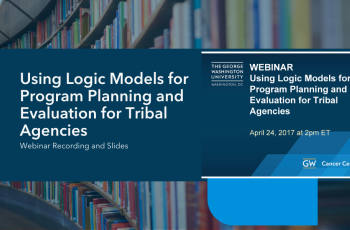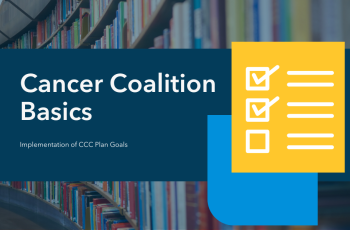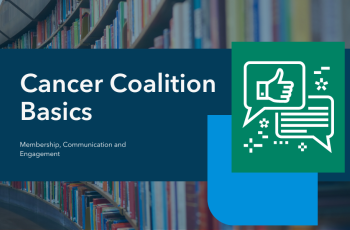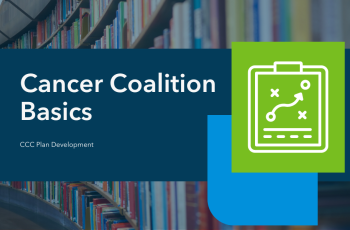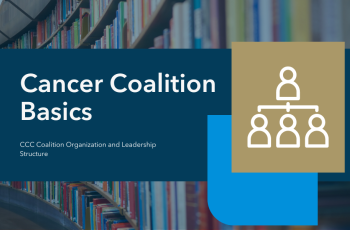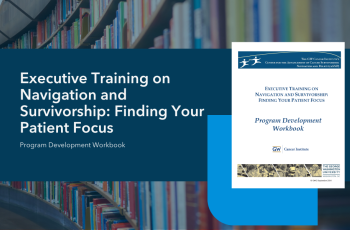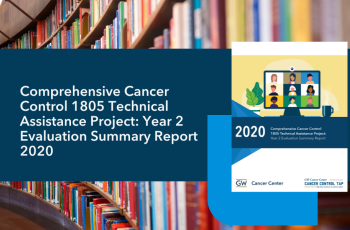This work was supported by Cooperative Agreement #NU58DP007539-01 from the Centers for Disease Control and Prevention (CDC).
Resources
Secure and sustainable funding is crucial for cancer control programming to flourish. Logic models can help convey to funders "why your program is important, and the logic behind why you expect it to be effective" and successful. On April 27, 2017, during National Cancer Control Month, we…
This section of the Cancer Coalition Basics summarizes ways that comprehensive cancer control (CCC) coalitions can implement their state's cancer control plan goals.
This section of the Cancer Coalition Basics covers comprehensive cancer control coalition membership composition, process and engagement.
This Cancer Coalition Basics section covers tasks that take place during CCC plan development.
This Cancer Coalition Basics section covers different organizational, leadership, program and coalition staffing configurations for comprehensive cancer control organizations.
The Nine Habits were developed utilizing information from an evaluation in 2012 that identified the attributes of high-performing CCC Programs and with input from CCC coalition members and many comprehensive cancer control experts throughout the nation. The updated version of the guide was…
Created by the American Cancer Society, a CCC National Partner, and the George Washington University (GW) Cancer Institute, this guide is intended to help organizations and communities gain a better understanding of how to evaluate survivorship programs designed to improve the quality of life of…
This latest version of the evaluation toolkit is intended to help organizations and communities evaluate a wide variety of interventions designed to increase awareness and use of colorectal cancer screening.
The Program Development Workbook is intended to be used with the Guide for Program Development and as part of the Executive Training on Navigation and Survivorship. This workbook contains tools to help during the process of program planning.
This 2020 report provides a brief overview of Year 2 of the GW Cancer Center comprehensive cancer control technical assistance project, "Building Cancer Control Capacity: Scaling Evidence to Practice to Advance Health Equity".
